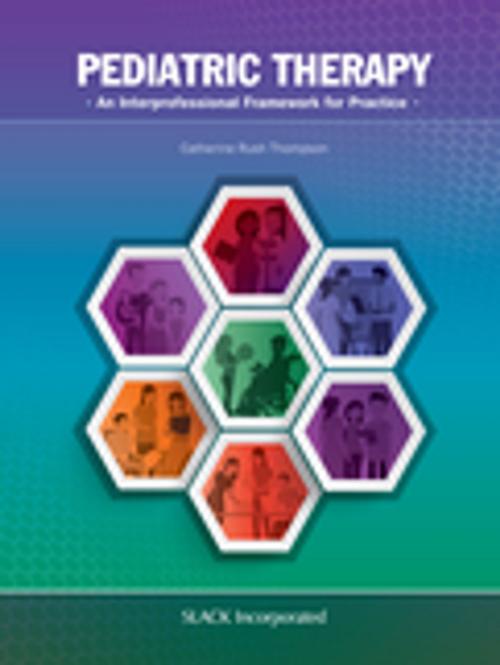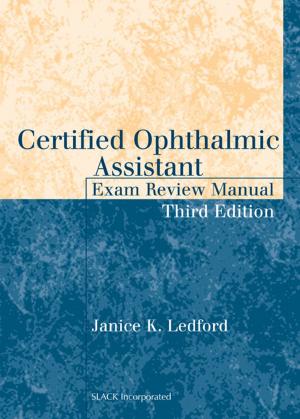Pediatric Therapy
An Interprofessional Framework for Practice
Nonfiction, Health & Well Being, Medical, Allied Health Services, Physical Therapy| Author: | ISBN: | 9781630911782 | |
| Publisher: | SLACK Incorporated | Publication: | February 1, 2018 |
| Imprint: | SLACK Incorporated | Language: | English |
| Author: | |
| ISBN: | 9781630911782 |
| Publisher: | SLACK Incorporated |
| Publication: | February 1, 2018 |
| Imprint: | SLACK Incorporated |
| Language: | English |
Dr. Catherine Rush Thompson and her team of contributors represent years of experience across the fields of physical therapy, occupational therapy, and speech-language pathology. Rather than discussing each of these fields in isolation, however, the text explores professional roles and responsibilities, emphasizing essential skills needed for collaboration in a range of pediatric settings. Key Interprofessional Concepts Covered: • Foundations and philosophies that serve as a basis for pediatric care • Assessing infants, children, youth, and adolescents in various situations • Legal and ethical considerations impacting pediatric care • Unique issues encountered in settings where pediatric therapies are offered • Using current evidence and the clinical reasoning process for designing and modifying interventions Each section of Pediatric Therapy offers case-based learning activities requiring interprofessional collaboration for clinical reasoning to optimize care. This approach encourages an appreciation of the importance of holistic care, as well as an understanding of the roles, frames of reference, and approaches favored by each discipline. Pediatric therapists and others who work in healthcare and educational settings will appreciate Pediatric Therapy: An Interprofessional Framework for Practice as a guide for developing the interprofessional competencies needed to achieve desired outcomes for children and their families.
Dr. Catherine Rush Thompson and her team of contributors represent years of experience across the fields of physical therapy, occupational therapy, and speech-language pathology. Rather than discussing each of these fields in isolation, however, the text explores professional roles and responsibilities, emphasizing essential skills needed for collaboration in a range of pediatric settings. Key Interprofessional Concepts Covered: • Foundations and philosophies that serve as a basis for pediatric care • Assessing infants, children, youth, and adolescents in various situations • Legal and ethical considerations impacting pediatric care • Unique issues encountered in settings where pediatric therapies are offered • Using current evidence and the clinical reasoning process for designing and modifying interventions Each section of Pediatric Therapy offers case-based learning activities requiring interprofessional collaboration for clinical reasoning to optimize care. This approach encourages an appreciation of the importance of holistic care, as well as an understanding of the roles, frames of reference, and approaches favored by each discipline. Pediatric therapists and others who work in healthcare and educational settings will appreciate Pediatric Therapy: An Interprofessional Framework for Practice as a guide for developing the interprofessional competencies needed to achieve desired outcomes for children and their families.















